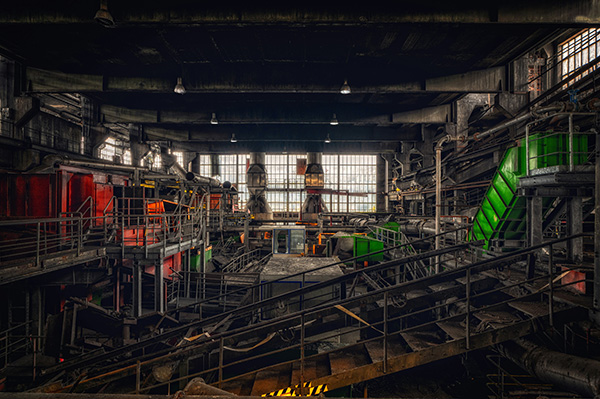Sustainability projects may take time and resources, but Energy-as-a-Service aims to help manufacturers overcome obstacles.

By Don Lanham, Senior Director of Sustainability Programs, Redaptive
Picture it: Your costs and greenhouse gas (GHG) reduction goals are being met and your reputation is growing. Sustainability initiatives reduce waste and conserve energy while displaying your values to discerning consumers and stakeholders.
The manufacturing industry is increasingly pursuing sustainability initiatives to achieve financial and reputational benefits. But achieving sustainability isn’t as simple as flipping a switch. It requires specialized knowledge and up-front costs with an eye toward long-term improvement. Learn why so many manufacturers struggle to make changes and what you can do to ensure success.
Improving energy and sustainability across manufacturing facilities is a heavy lift — and it’s rarely inside facility management’s wheelhouse. On top of the complexities of planning for a change such as LED lighting or solar power, manufacturers juggle conflicting challenges, such as:
Increasing Operational Expenses
All you want to do is cut some costs and become more sustainable, but outside forces are working against you. The costs of electricity, natural gas, and water continue to rise, forcing manufacturers to spend more. And to add insult to injury, using these resources drives up your GHG emissions instead of reducing your carbon footprint.
Pressure to Meet Sustainability Goals
Manufacturers aren’t working alone toward sustainability; key stakeholders turn up the heat to set ambitious targets. Whether it’s becoming carbon neutral by 2050 or achieving a certain amount of energy savings across the portfolio, the pressure is on, thrusting you into unfamiliar territory.
Your primary business isn’t “going green” — it’s creating your product and ensuring an efficient manufacturing line. Sustainability managers are in increased demand to help on this new journey.
Dependence on Critical Equipment
No matter your industry focus, key systems keep your manufacturing operations going. Boilers, chillers, HVAC systems, and refrigeration units aid in both manufacturing and production. These units each have a useful life, and when the equipment exceeds this, breakdowns and maintenance needs increase.
If one system goes down, it can test your resilience, forcing operations to shut down or products to be destroyed. Investing in modern equipment and maintaining and optimizing it reduces your risk of downtime or inefficiencies.
But what’s really holding you back? Money? Old equipment? Sustainability projects don’t align with established operations, so manufacturers often:
Defer Projects
“If we don’t have the funding or capital for a sustainability project, we’ll just put it on the back burner and address it next year.” Manufacturers often delay energy and sustainability projects if immediate capital isn’t available. On top of this, the manpower for manufacturing products just isn’t there. Between cost-cutting measures, headcount reductions, and lack of expertise, few are equipped to address sustainability, pushing new projects into the background.
Keep a “Run to Fail” Mentality
Facility managers often take pride in keeping working yet inefficient equipment going, but running your equipment into the ground isn’t the answer. Energy-as-a-Service (EaaS) can remove the “run to fail” mindset with funding for newer, more efficient, and often better-running equipment. You don’t need to worry about budgeting or overworking systems because your payment comes from the energy savings generated.
Focus on Traditional Metrics
Manufacturers don’t always prioritize sustainability, operating in cultures focused on reducing operational expenses and driving profitability. With this in mind, many processes and metrics center on profit, earnings per share, market share, pricing, and cost. If sustainability measures played larger roles in decision-making, projects could get more attention.
Don’t assume that improving your sustainability is “too expensive” or “too hard.” The worst thing you could do is nothing at all, and the resources are right here for the taking! Improve your manufacturing operations with innovative tactics.
Go Beyond Traditional Funding
Many facility managers are tasked with making their space more efficient but don’t know where to start. You don’t have to go it alone. Seeking outside help, such as from a third-party EaaS provider, can unlock new financing solutions.
Implement Advanced Metrics and Monitoring
Legacy performance metrics, such as labor per unit produced, vibration pressure, fluid pressure, and machine heat, don’t cut it for sustainability. Shift your attention to the energy consumed per unit produced — including electricity intensity, energy intensity, and natural gas intensity — to measure consumption versus the produced unit.
Improve Data Collection via Smart Metering
Are you still relying on your energy bill to understand what’s happening in your facility? This can’t show you which equipment consumes the most power. Metering can isolate energy usage with granular data and performance monitoring so you understand inefficiencies and can prioritize equipment to fix.
Sustainable manufacturing is a journey that’s well worth the effort. Instead of leaning on the “old ways,” improve your processes, upgrade equipment, and realize new efficiencies. What will your first project be?
Don Lanham is the senior director of sustainability programs at Redaptive, an Energy-as-a-Service provider that funds and installs energy-saving and sustainable equipment. He’s a sales management professional with diverse experience across smart manufacturing, digital transformation, and Software-as-a-Service (SaaS) who has brought his strategic business planning and sales process expertise to brands of all sizes, including APANA, Hitachi, Philip Morris USA, Novartis OTC, and more.
Scott Ellyson, CEO of East West Manufacturing, brings decades of global manufacturing and supply chain leadership to the conversation. In this episode, he shares practical insights on scaling operations, navigating complexity, and building resilient manufacturing networks in an increasingly connected world.